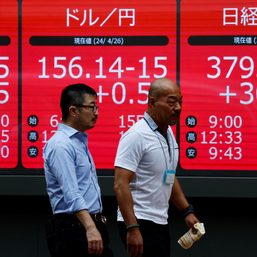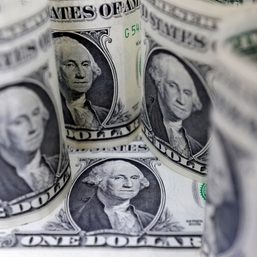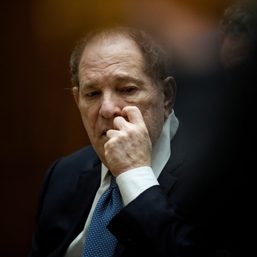SUMMARY
This is AI generated summarization, which may have errors. For context, always refer to the full article.

The United States and Britain ended a four-year dispute over US steel and aluminum tariffs on Tuesday, March 22, pledging to work together to counter China in a deal that also removes retaliatory tariffs from US motorcycles, whiskey, and other products.
In a joint statement, US Commerce Secretary Gina Raimondo and US Trade Representative Katherine Tai said the deal would protect steel and aluminum companies – and their workers – in both countries, allowing the allies to focus on what they say are “China’s unfair trade practices.”
The would also help ease inflation in the United States, where consumer prices have hit their highest level in 40 years, Raimondo said.
Under the deal, Britain will receive a duty-free import quota of over 500,000 tons of steel “melted and poured” in the country annually, with higher volumes subject to the 25% tariff.
It also sets smelt and cast requirements on aluminum, requiring importers to certify the origin of raw aluminum used, a move to combat subsidized metal from China and other countries.
The agreement requires any UK steel company owned by a Chinese entity to audit their financial records to assess influence from the People’s Republic of China government, and then share them with the United States, the statement said. The requirement will initially apply to British Steel, acquired by China’s Jingye Group in 2020.
The announcement of the deal was warmly welcomed by many business executives and labor leaders in both countries.
The pact, which comes after Raimondo met with Britain’s trade minister, Anne-Marie Trevelyan, also will end Britain’s retaliatory tariffs on iconic American goods, including Harley-Davidson motorcycles, bourbon whiskey, Levi Strauss blue jeans, and cigarettes.
The United States has reached similar deals with the European Union and Japan.
Industry boost
Britain is a relatively small supplier of steel to the United States. Its 500,000-ton quota for finished steel exceeds average UK shipments to the United States in 2018 and 2019 and is considerably smaller than the EU quota of about 4.3 million tons and Japan’s quota of 1.25 million tons.
British Prime Minister Boris Johnson hailed the deal in a tweet as “fantastic news and a very welcome boost to our steel and aluminum industries.”
Trevelyan said the deal would help support some 80,000 jobs across Britain. She met with Raimondo in Washington after two days of meetings with Tai and other US trade officials about expanding US-UK trade ties and ensuring that both countries address a changing digital economy and protect labor rights and the environment.
But Britain, whose steelmakers use coal-fired blast furnaces, will not join US-EU talks aimed at reducing the steel industry’s carbon footprint, choosing instead to consult with Washington on methodologies for measuring emissions.
The Trump administration imposed the tariffs of 10% on aluminum and 25% on steel in March 2018 under the Section 232 national security law to protect US producers from a flood of subsidized imports.
The US Steelworkers Union said the deal marked “an important step in addressing systemic problems like illegal dumping and global overcapacity that threaten the vitality and future of our steel and aluminum industries.”
It said the arrangement with Britain left the overall structure of the 232 relief measures in place.
Myron Brilliant, the head of international affairs for the US Chamber of Commerce, warned of a possible steel shortage due to trade disruptions from the war in Ukraine, called for the Section 232 tariffs to be removed from more countries.
Steelmakers have expressed concerns that easing the tariffs for allied countries will allow surges of steel into the United States that could hurt industry profitability. But futures prices for Midwest hot-rolled steel remain elevated at $1,138 per ton, compared to $1,265 a year ago, more than $1,900 last August, and $825 when tariffs were first imposed in 2018. – Rappler.com
Add a comment
How does this make you feel?

![[OPINION] A rebellion long overdue](https://www.rappler.com/tachyon/2024/06/mass-uprising-matrix-june-4-2024.jpg?resize=257%2C257&crop_strategy=attention)






![[EDITORIAL] US Supreme Court on Trump’s immunity: Punyal sa puso ng Amerika](https://www.rappler.com/tachyon/2024/07/animated-trump-scotus-presidential-immunity-carousel.jpg?resize=257%2C257&crop=263px%2C0px%2C720px%2C720px)






There are no comments yet. Add your comment to start the conversation.